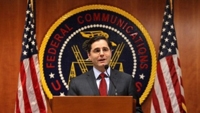FCC net neutrality rules receive claims of violations

It has been only a month since the FCC passed its net neutrality rules, and already there are service providers and advocacy groups claiming that those rules are being violated.
Consumer groups claim that wireless provider MetroPCS is blocking services such as Skype from its service. Level 3 and Voxel, two companies that carry Internet traffic over other systems, have charged that Comcast has unfairly raised prices for them to deliver online videos to home subscribers.
The charges were enough to prompt Verizon to file suit against the FCC’s new rules.
“We looked at what was happening with MetroPCS, Level 3 and other noise around the issue and were concerned regulation would expand further into new areas,” a Verizon spokesman told The Washington Post.
On Tuesday, MetroPCS, the nation’s fifth-largest wireless carrier, also filed a suit challenging the FCC’s net neutrality stance.
It seems to be only the beginning of the fight over the FCC’s net neutrality, which is also opposed by Republicans in Congress. The FCC’s rule prohibits carriers from blocking or arbitrarily slowing the transmission of any particular Web traffic into consumers’ homes.
Though net neutrality was a key promise in President Barack Obama’s 2008 presidential campaign, access providers argue that the FCC exceeded its legal boundaries with a weaker version of the rule. They point to a federal appeals court decision last April that overturned the agency’s sanctions against Comcast for blocking file sharing between subscribers.
The professional video industry's #1 source for news, trends and product and tech information. Sign up below.
The FCC believes the rule is based on sound legal principles and cites telecommunications policy to justify the new rules, setting the stage for a showdown.
Level 3’s charges against Comcast raised legal issues of whether net neutrality rules apply to business relationships and not just individuals. Level 3 carries a large amount of Internet data through its pipes to customers of Comcast and other home service providers. Last November, Level 3 made a deal with Netflix to deliver streaming video feeds to Internet users. Comcast, it said, unfairly tried to edge out the new video competition by charging Level 3 more to connect traffic between different parts of the Internet.
“In the long run, what they are doing is erecting a toll booth,” John Ryan, executive vice president of Level 3, told The Washington Post. “Even if it is not intending to discriminate directly against independent video, the effect is undeniably discrimination of independent video.”
Voxel, which also provides data-hosting services, said Comcast purposely has kept some lines to customers congested so companies have to pay more for access to users.
Comcast disagreed, arguing that because Netflix users gobble up 20 percent of all bandwidth during peak business hours, Level 3 should pay to connect to users. Verizon and AT&T have written to the FCC in support of Comcast, hoping to prevent that dispute from spilling over into their businesses.
As to MetroPCS, the wireless carrier last month introduced a basic $40 monthly plan for data that may block users from accessing Skype, Free Press, a consumer group, charged. The carrier said it would reply to those criticisms by Feb. 11, but calls them “erroneous.” Then, on Tuesday, it filed the lawsuit.
The issues are both difficult and sticky for both consumers and service providers.
“Companies and customers will have to become even more accustomed to living in a world with a basic set of net neutrality rules,” Rebecca Arbogast, an analyst at Stifel Nicolaus, told The Washington Post.
